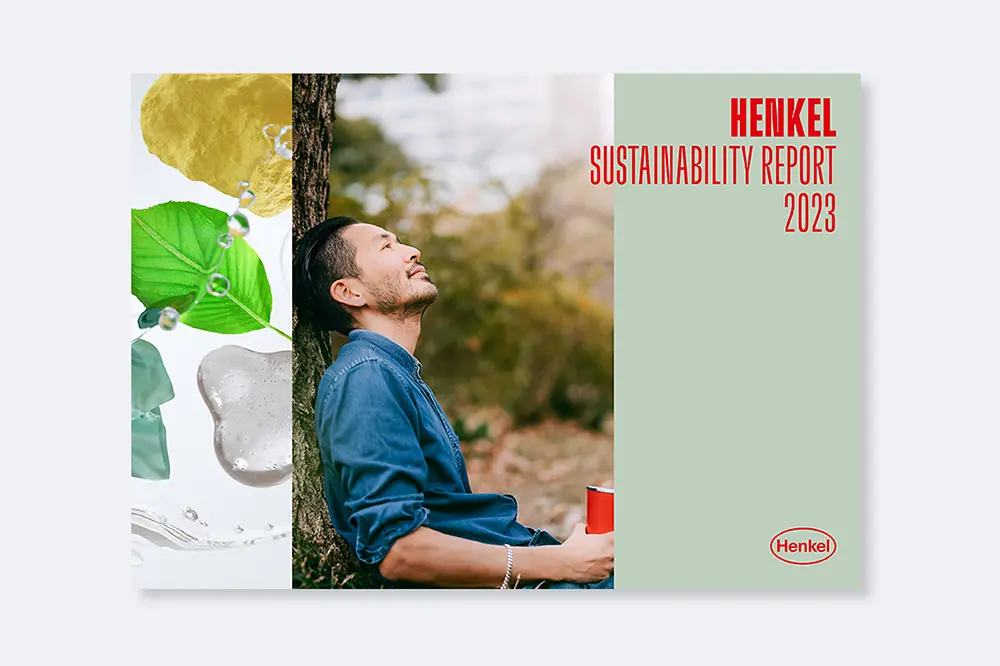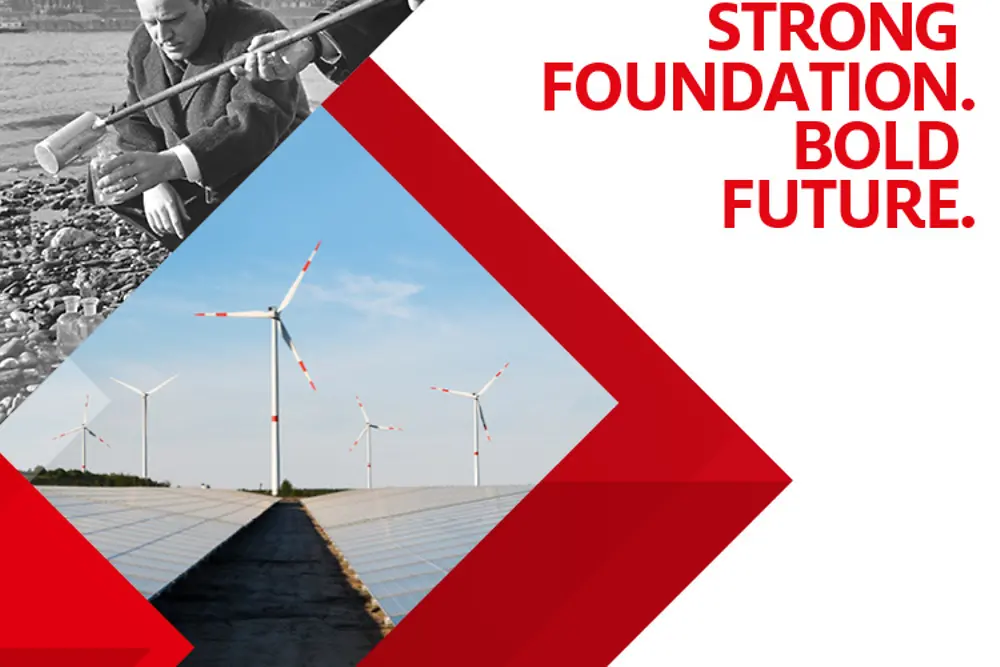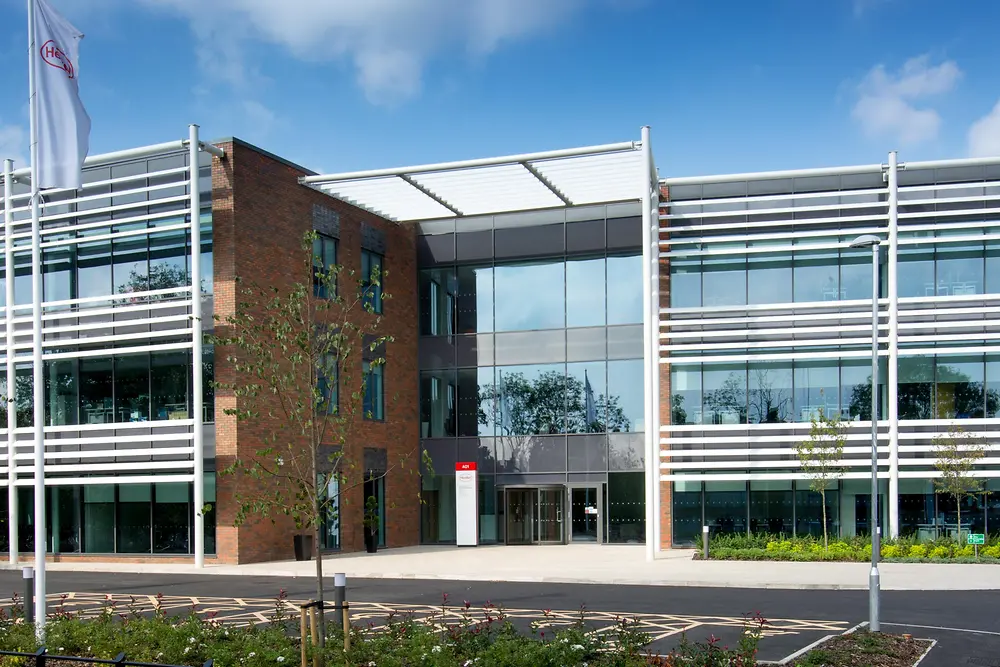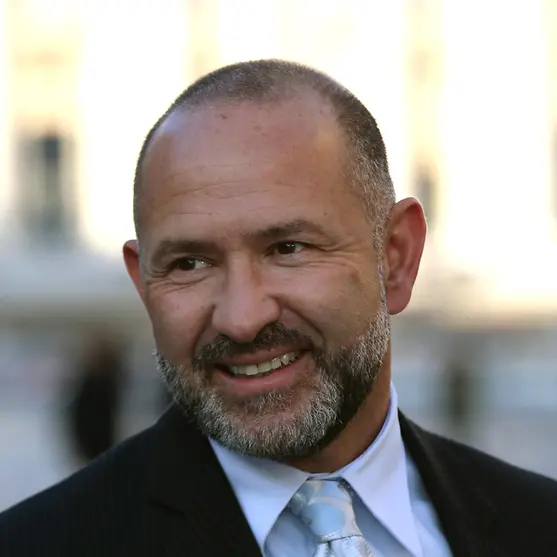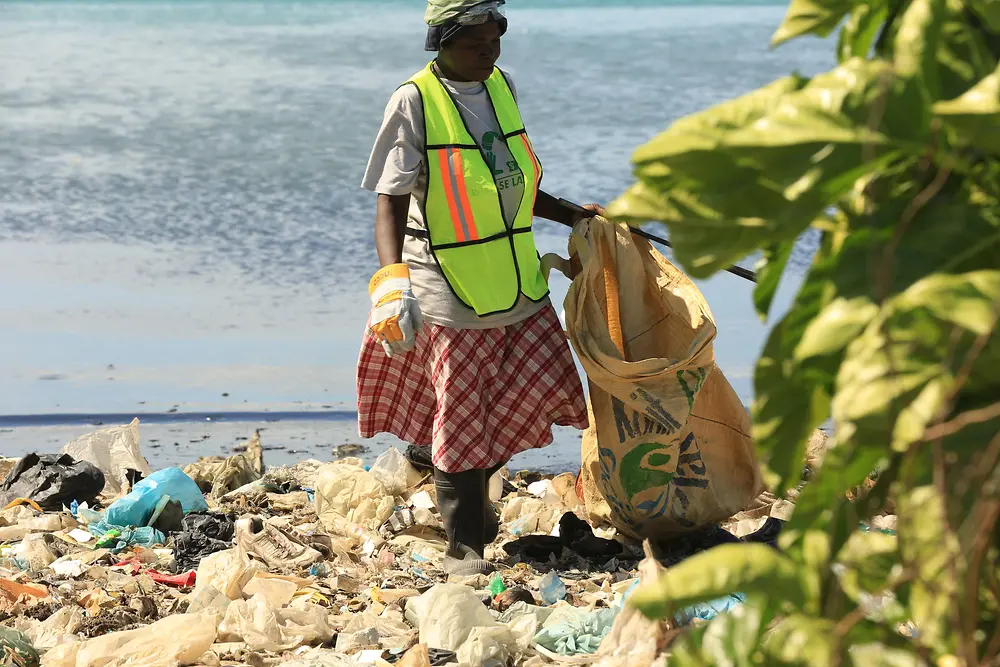Learn more about Henkel Brands & Businesses in UK & Irelands: Includes useful information about the brands, technologies and latest innovations in our business areas: Adhesive Technologies and Consumer Brands.
“We must turn off the faucet and continue to monetize waste, so it’s never discarded”
In January, I travelled with the Henkel team to Haiti for the grand opening of three new plastic waste collection centers supported by Schwarzkopf’s Million Chances initiative and Henkel’s Laundry & Home Care business. These Social Plastic® collection centers are part of a partnership between Henkel and The Plastic Bank which was established in 2017. They are operated by The Plastic Bank and will collect thousands of kilos of plastic per year, serving hundreds of collectors. The centers offer cash or goods ranging from phone charging to cooking fuel in exchange for plastic garbage. We celebrated the opening with families, who now have access to education thanks to the money they have earned with collected plastic waste.
According to the World Bank, one out of four Haitians (2.5 million) earns less than US $1.23 a day, making Haiti the poorest country in the Americas. This is just one reason why Henkel decided to partner with The Plastic Bank in Haiti where there is great potential for impact. Within three years, The Plastic Bank:
- has established 35 Social Plastic® collection centers with
- 2,000 collectors who have
- retrieved 8 million pounds of plastic waste, which is the
- equivalent to 144 million plastic bottles kept out of the ocean, and
- turned them into Social Plastic® for reuse by corporations.
For many Haitian families, daily survival precludes any concern about the environment. Discarded plastic piles up in streets and gutters, and eventually flows into rivers and the ocean. As I stood with the Henkel executives on the beaches of Haiti, we were struck by seeing the devastation that is occurring with plastic on the beach.
Every minute of every day, the equivalent of one truck full of plastic dumps into the ocean worldwide, adding up to 8 million tonnes annually. There will be more plastic than fish in the oceans by 2050 if we continue business as usual. It is killing our marine wildlife and contaminating our seafood. We must turn off the faucet and continue to monetize waste, so it’s never discarded.
To do this, The Plastic Bank is expanding into Brazil, Ethiopia, and Philippines, and soon to Indonesia and India. We invite corporations to purchase the Social Plastic® or purchase plastic offset. The increased value of Social Plastic® benefits the collectors. With about 10% of the world population living on less than $1.90 a day, there is still much work to do to reduce global poverty.
The Plastic Bank is creating a supply chain of social material that can be used for good throughout the world. But it’s our private partnership with Henkel to create abundance together that we’re most excited about.
As a result of our partnership, thousands of kilos of plastic will be extracted from the environment. Haitian mothers and children will benefit the most. The price increase for Social Plastic® will be passed on to those most vulnerable, including children who can go to school or see a doctor.
We know that the shared experience of working together in Haiti will further our bond as we all steward the earth, its ocean and its people.
About The Plastic Bank
The Plastic Bank ecosystem reveals the value in waste and offers a business solution to poverty, with blockchain technology to collect and exchange plastic in developing countries. IBM architected our proprietary blockchain application to ensure our social and environmental impact is authentic and transparent. The app gamifies the collection and exchange of plastic for incentives. We also create a supply of ethically-sourced Social Plastic® for multinational corporations to use as feedstock in manufacturing. The Plastic Bank is selling Social Plastic® to Shell Oil, Marks & Spencer, and Henkel, and continues to build partnerships with other Fortune 500 brands. Our goal is to gather 1 billion people together to monetize waste by 2030.
